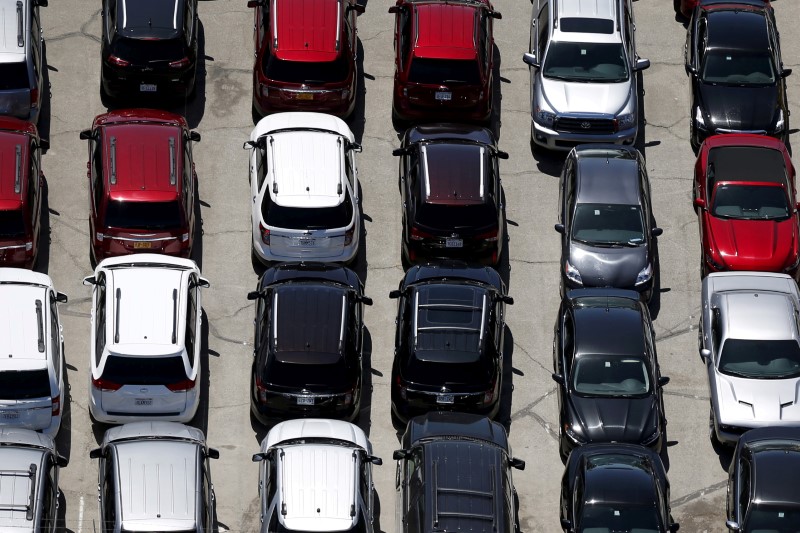By Nick Carey
DETROIT (Reuters) - U.S. auto sales in November likely slid 0.2 percent from the same month in 2016 despite high discounts to consumers as automakers have sought to clear out record levels of unsold 2017 model vehicles, industry consultants J.D. Power and LMC Automotive said on Monday.
"The need to clear out record inventories of prior model-year vehicles continues to keep incentive spending aggressive in November," Thomas King, J.D. Power's senior vice president of data and analytics, said in a release accompanying the consultants' sales predictions.
New 2018 model-year vehicles have accounted for 44 percent of month-to-date sales, compared with November 2016 when the then-new 2017 model-year vehicles made up 53 percent of sales.
November U.S. new vehicle sales will likely be about 1.374 million units, a drop of 0.2 percent from 1.377 million units a year earlier, the consultancies said.
The forecast was based on the first 16 selling days of November. Automakers will release U.S. sales results for the month on Dec. 1.
Despite the minor dip in new vehicle sales, LMC raised its full-year 2017 forecast to 17.2 million units, from a previous estimate of 17.1 million units.
The seasonally adjusted annualized rate for November will be 17.3 million vehicles, down nearly 2 percent from 17.6 million units in the same month in 2016, the consultancies said.
Retail sales to consumers, which do not include multiple fleet sales to rental agencies, businesses and government, were also set to decline 0.1 percent in November.
U.S. sales of new cars and trucks hit a record high of 17.55 million units in 2016. But a saturated market, thanks partly to a glut of nearly new used vehicles, has forced automakers to hike discounts to entice consumers to buy.
The average discount per vehicle in November hit $4,065, just short of an all-time record in September of $4,091.
Discounts hit 10.8 percent of the manufacturer's recommended sales prices. Experts believe that anything above 10 percent hurts vehicle resale values and is ultimately unhealthy for the industry.
The consultancies noted that discounts have exceeded 10 percent in 16 of the last 17 months.
